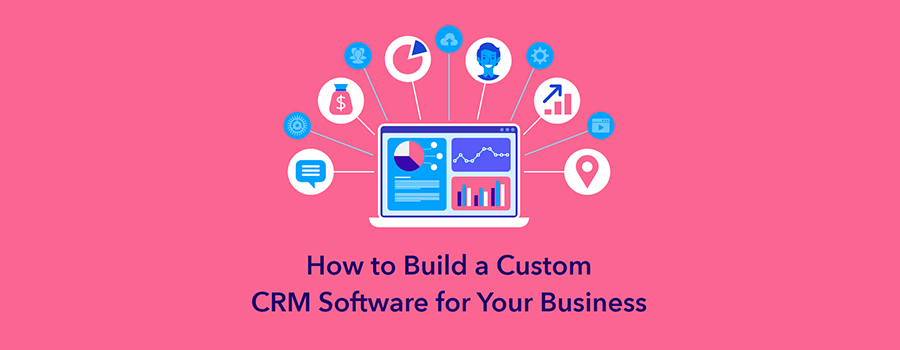If you are looking to boost your business performance and streamline your company’s workflow, then consider implementing custom CRM solutions. Custom software is specifically designed for your company, specifically by a professional who specializes in customer relationship management (CRM). Simply put, CRM software enables companies to store their clients’ data in a database and streamline their client interactions with the company. Basically, all you have to do is a little planning and installation of the system to draw data from a variety of sources, create personalized dashboards for marketing, sales, and so forth. There are many options when considering how to build a custom CRM system, so it is best to consider your needs carefully and think about how it will integrate within your current workflow and goals. Here are the steps to Build a Custom CRM Software For Your Business.
Steps to Build a Custom CRM Software For Your Business
Understand what exactly your needs are
When considering how to build a custom CRM software for your business, it is important to understand what exactly your needs are. For example, will your new software provide basic reports or more in-depth analytics? It is also essential to know what your priorities are in terms of CRM automation and analytics. For example, do you expect to only receive reports from third-party vendors, or will you also want to be able to access customer information via a web portal? Once you have answers to these questions, you can move on to finding the right CRM solutions.
Create a knowledge base
The next step in custom crm software development is to begin a project. This usually involves creating a knowledge base. This helps technicians learn more about the company but also helps them plan a strategy for implementing solutions. The knowledge base should be comprehensive, covering all facets of the business, and provide the foundation for integrating the customer relationship management software into other parts of the business. The plan should also cover contingency plans, metrics, goals, and methods for measuring progress.
Determine the role of the customer in your business
Once the knowledge base is complete, the next step is to determine the role of the customer in your business. Ideally, the customer should be at the very top of your list when it comes to deciding which solutions you implement. However, it may not always be possible to always get that person on your list. For example, if your business needs to process large amounts of customer data, you may want to consider hiring a third-party data warehouse provider. This will give you access to relevant data, regardless of whether the customer actually fills out a survey or completes a questionnaire.
Consider the different ways that email marketing
Next, you should look at whether building a custom CRM software solution is going to make your business better off in the long run. Consider the different ways that email marketing could benefit your organization. By integrating your customer database with your sales process, for example, you can greatly increase your sales. Similarly, by monitoring the activities of your customers via email marketing, you can make sure that you’re taking the right steps to convert those customers into repeat customers.
Look at how well the Custom CRM Software you are working
You also need to look at how well the custom crm solutions you are working on are currently being used. If the information you have is outdated, you could face the risk of losing a lot of customers because of this. Therefore, the sales process should always remain up to date, and this includes making sure that your customer database is as up to date as it can be. There are many CRM systems that allow you to easily determine this.
Note the value that a single database provides in terms of flexibility
Finally, it’s important to note the value that a single database provides in terms of flexibility. When it comes to building effective customer relationship management software, the more flexible the system is, the better it will be for you and your business. This is why most businesses choose to use open source CRM systems, as they allow you to easily adjust the database to your needs. However, there are many CRM systems that are quite versatile, but they are not as flexible as a custom-made app. This is why you should take a look at the features that your existing crm software offers and compare these to the available apps before choosing which one to use for your business.
Perhaps the biggest advantage of a custom-built app is that it gives you all of the functions that you would want in a customer support system while making sure that all of the processes are properly automated. One great example of an automated customer support system is an automated lead nurturing system, which helps businesses create contact lists and mail promotional advertisements automatically. Automated systems like these are becoming increasingly popular among marketers because they save time, money, and allow marketers to focus on their core activities. However, an automated system without any human interaction can be frustrating for some marketers, who do not feel comfortable handing their phone numbers over to machines.
If you are planning to use an automated CRM, or even an automated system that is more flexible than a custom-built app, you should consider all of the options so that you can be sure that you are getting the most out of your investment.

